The idea of a robot mowing your lawn used to seem like science fiction — a cool thing to imagine, like flying cars.
But now, they’re here, bustling around commercial properties quietly, efficiently mowing the lawn.
How do property managers feel about this high-tech new development?
We asked them.
Are they open to this innovative technology? How do they think it will change landscaping quality and prices?
Here are the survey results, along with thoughts from Michael Mayberry, chief technology officer at Level Green Landscaping, and Kevin McGlade of Scythe Robotics in Longmont, Colorado, which manufactures robot mowers.
Let’s Start with the Survey Results
1. Are you open to robots performing landscape maintenance tasks on your property
Yes: 41.67%
No: 33.33%
Indifferent: 25%
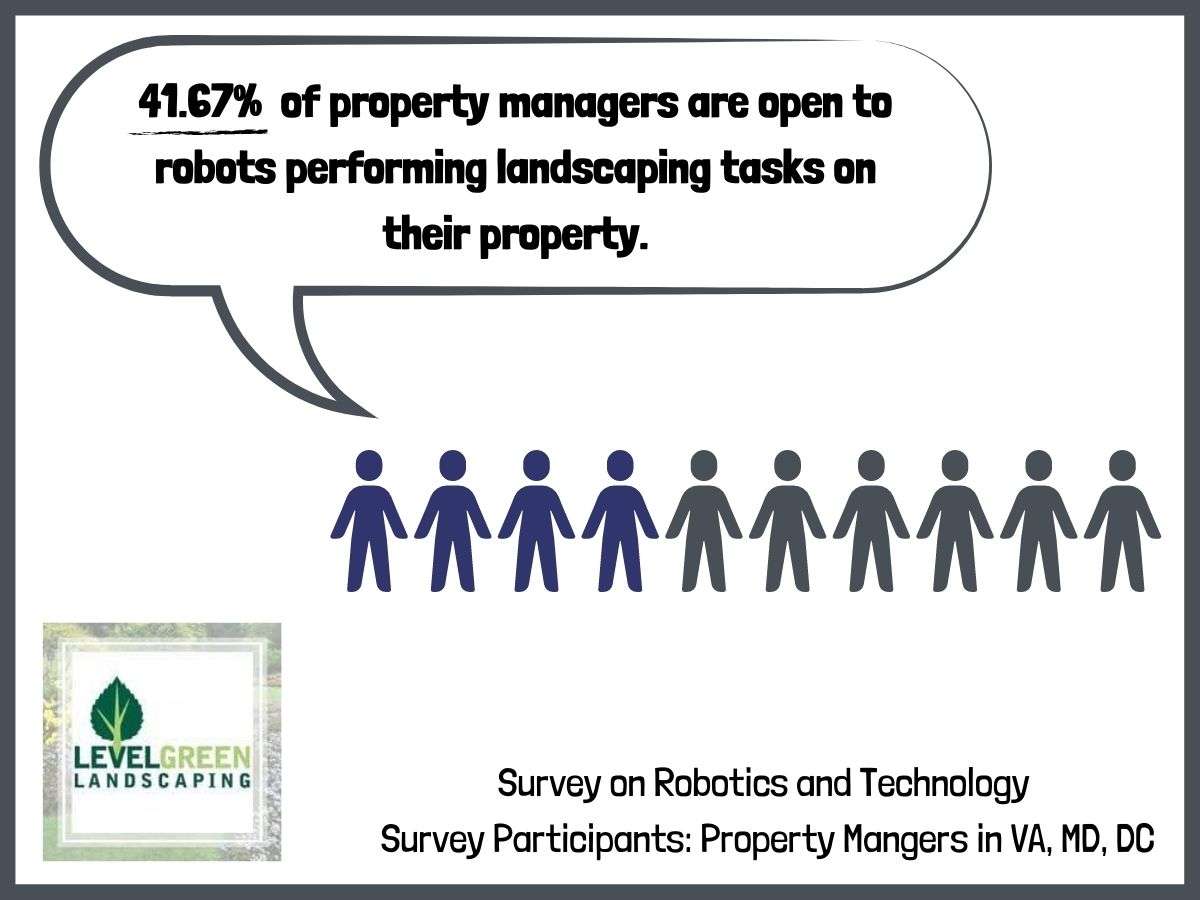
2. How do you think robots will impact the cost of services?
I think the cost of services will go up: 16.67%
I think the cost of services will go down: 8.33%
I think the cost of services will stay the same: 75.00%
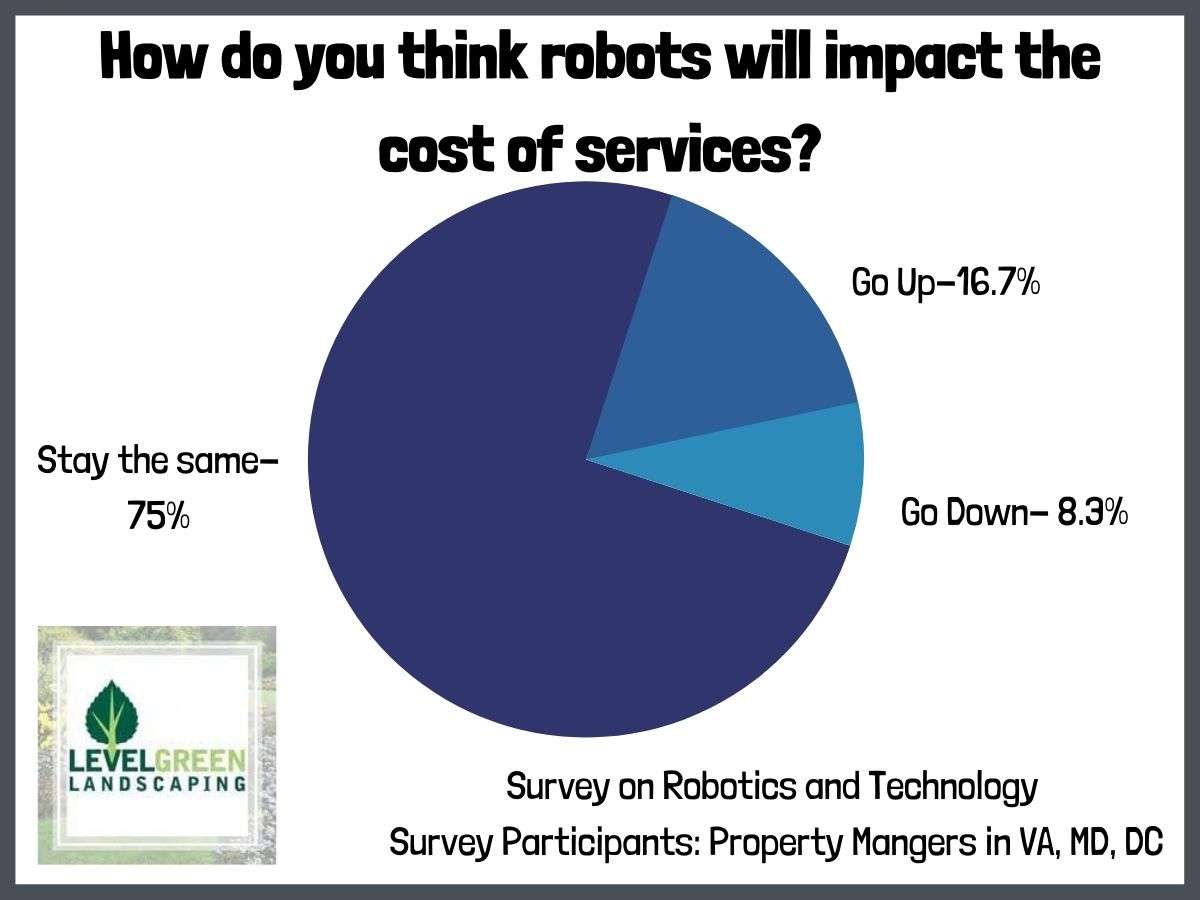
3. How do you think robots will impact the quality of services?
I think the quality of services will improve: 0.00%
I think the quality of services will decrease: 58.33%
I think the quality of service will remain the same: 41.67%
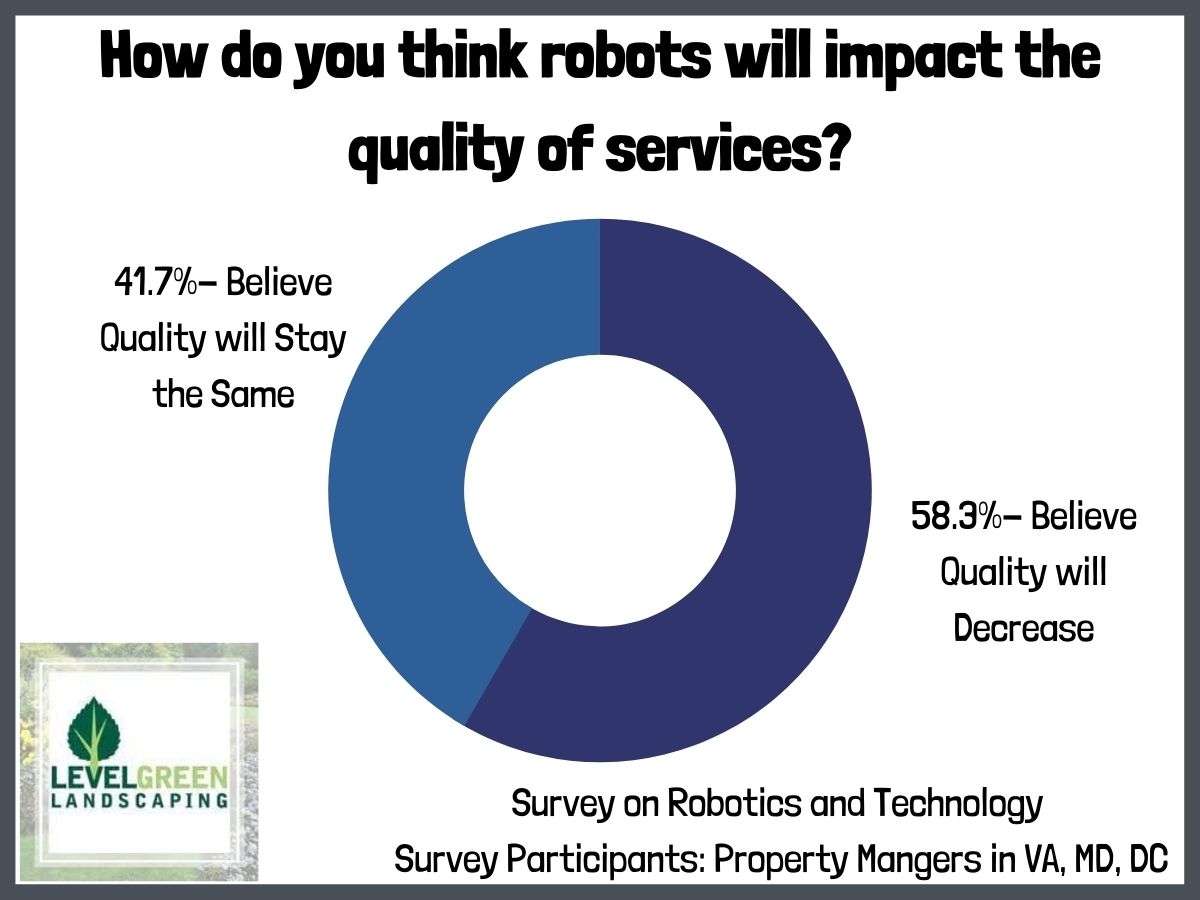
4. Would you choose one vendor over another because of their adaptation to robotics?
Yes: 33.33%
No: 66.67%
5. How many years do you imagine it will be until robotics are being used by a majority of vendors?
1-3 years: 0.00%
4-6 years: 58.33%
7-9 years: 8.33%
10+ years: 33.33%
“Service Will Actually Increase”
Level Green’s Mayberry was surprised that more than half of the property managers surveyed think quality will decrease with the use of robotic mowers.
It’s just not true, he says.
“We’re using four small robotic mowers now and they’re working great,” Mayberry says. “Robotic mowers provide a very consistent cut. It’s the same quality our customers have always been looking for.”
Plus, the smaller mowers stay on the customer’s property, he says, “so they’re constantly mowing.
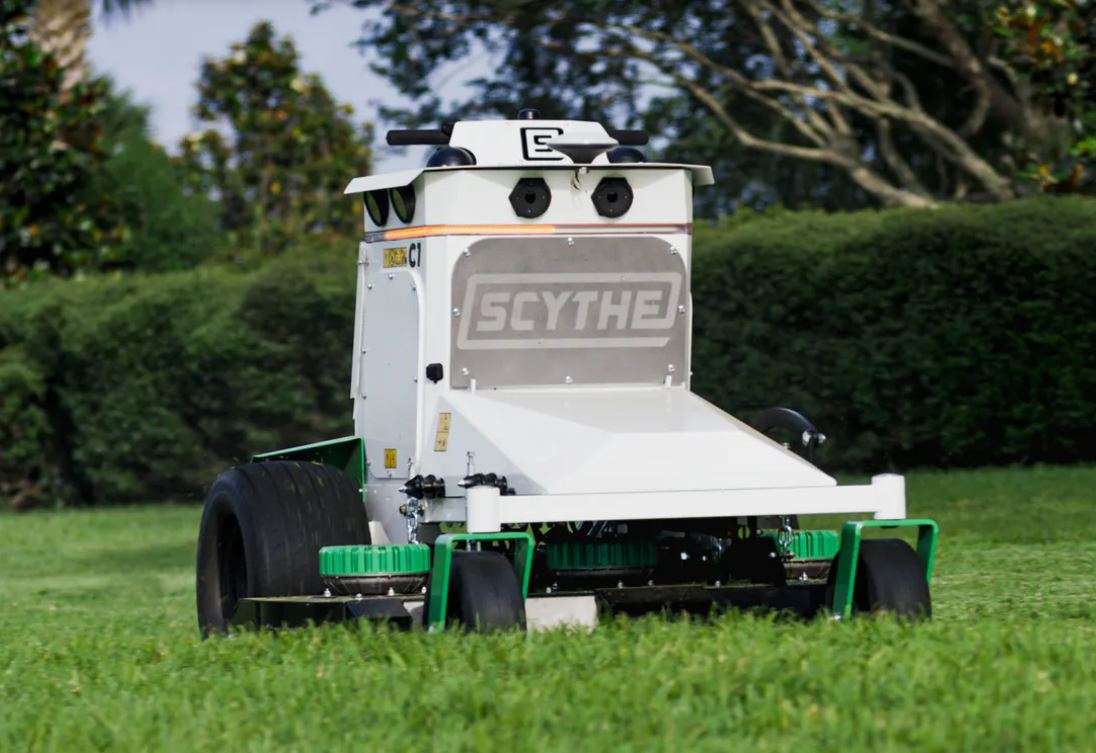
“There’s nothing to be concerned about with quality,” Mayberry says. “Service will actually increase, allowing our people to focus on details like pruning, weeding, and making sure entrances look great.”
Robotic mowers have sensors on board, combined with algorithms that ensure there are no skipped spots, Mayberry says.
“A robotic mower understands its location down to less than a centimeter,” he says. “It will absolutely know what it has mowed and what it hasn’t.”
Robotic mowers aren’t replacing crew members on a customer’s property, Mayberry says.
“There will still be human beings on their property, line trimming and using weed eaters, who will make sure no spots are missed,” he says. “Meanwhile, those humans can focus on the things humans are good at, which will actually increase quality. While the robots are mowing, humans will be tending to all the other details on your property.”
Kevin McGlade of Scythe Robotics agrees.
“The technology powering the mower ensures the cut will look just as good as one done by a traditional mower,” McGlade says. “And, by taking care of the repetitive and basic tasks of mowing, it will free up landscaping crews to focus more on property-enhancing tasks like trimming, edging, pruning, and seasonal color that will keep properties looking their best.”
Scythe mowers also provide benefits like high consistency, fast speeds, reduced noise, and zero emissions, he says, which adds to the quality of service clients receive.
How Will Robotic Mowers Affect Pricing?
Cost for customers won’t go up, Mayberry says. In fact, over time, robotic mowers can help keep landscaping costs in line.
“Robotic mowers can help mitigate rising labor costs, so over time they can help us hold costs more steady,” Mayberry says. “Meanwhile, other landscaping companies without robots will always need to pay their people more year after year. They’ll be less competitive when it comes to cost.”
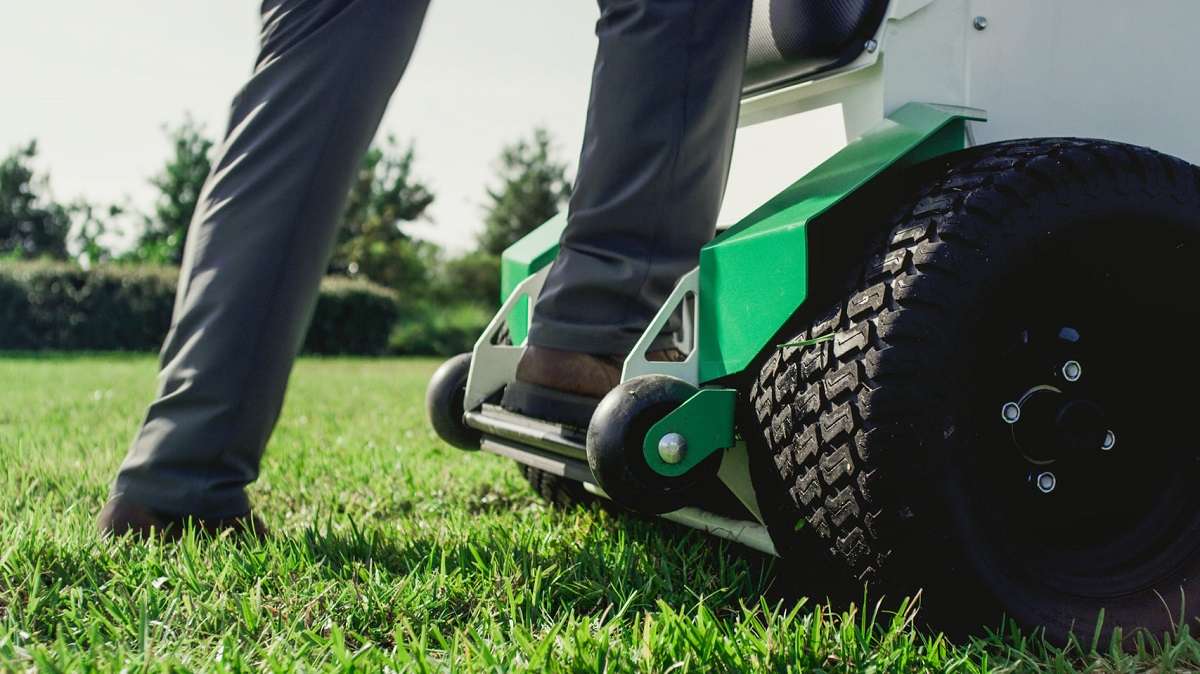
McGlade says Scythe’s pricing model for its autonomous mowers allows for greater predictability.
“Automation will decrease costs for property managers while increasing margins for contractors,” he says.
When Are Robotic Mowers Coming to You?
More than 58 percent of property managers surveyed predicted it will be four to six years until robotics are being used by a majority of landscaping companies.
It could be sooner than they think.
Level Green is already using four robotic mowers and plans to add more.
McGlade says Scythe is already working with landscape contractors mowing properties with its autonomous mowers and has plans to deploy a growing number of robots to the field in the coming months.
“The sheer size of the landscaping industry and the number of fleets to convert means it will take time before most contractors switch to autonomous mowers,” he says. “But while the mass-market adoption of robotic mowers may be several years away, the technology is here and in use today.”
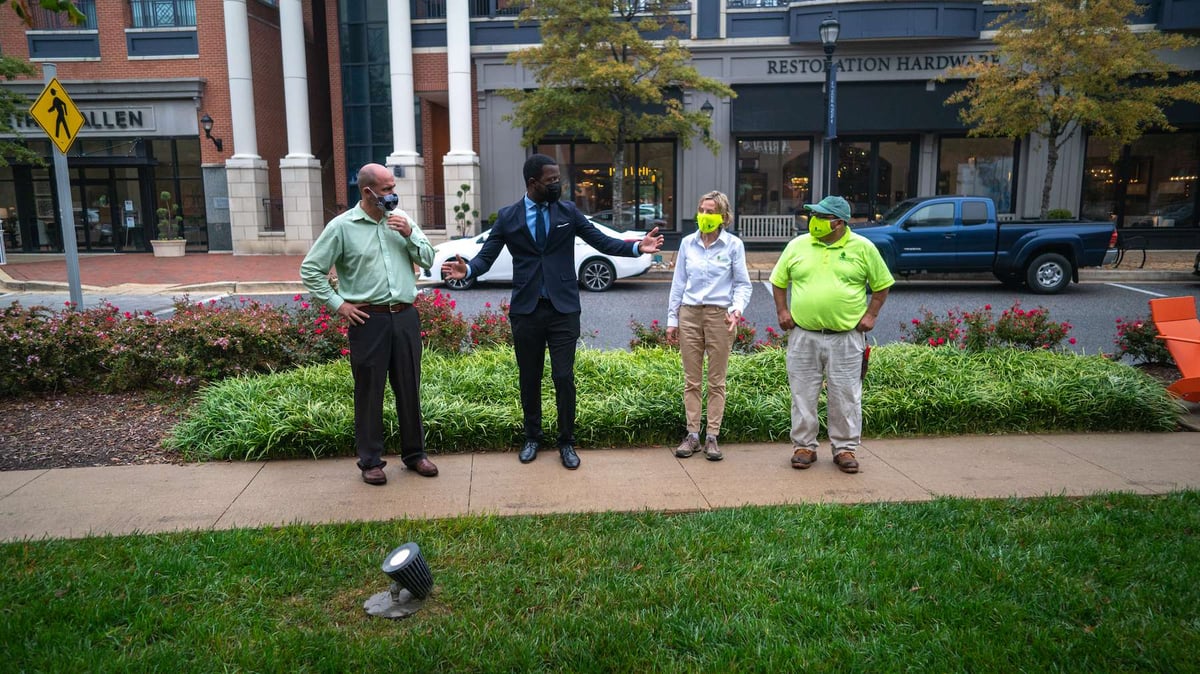
Plenty of factors will speed up the process, he says: the ongoing labor shortage, the increasing popularity of electric-powered equipment, government regulations mandating decreased noise emissions, and the integration of efficiency-driving technology.
Seeing is believing. Mayberry recently brought a Level Green customer to a robotic mower demonstration.
“He was very impressed,” Mayberry says. “It’s very different to talk about and hear about these machines versus seeing them.
“Once you see it, you realize how powerful of a tool it really is.”
Trust Your Commercial Property Landscape Maintenance to Level Green
As we add more robotic mowers to our fleet of equipment, we hope you’ll be as excited as we are.
The potential for your property is huge.
High-quality service. Even more attention to detail. Plus, they’re really cool.
If you’re not already a Level Green Landscaping client, we’d love to add you to our growing list of happy customers. Our focus is on commercial properties like offices, mixed-use sites, HOAs, municipalities, and institutions in Maryland, Washington DC, and parts of Virginia.
Contact us at 202-544-0968. You can also request a free consultation online to meet with us one-on-one.
We’d love to hear from you.


